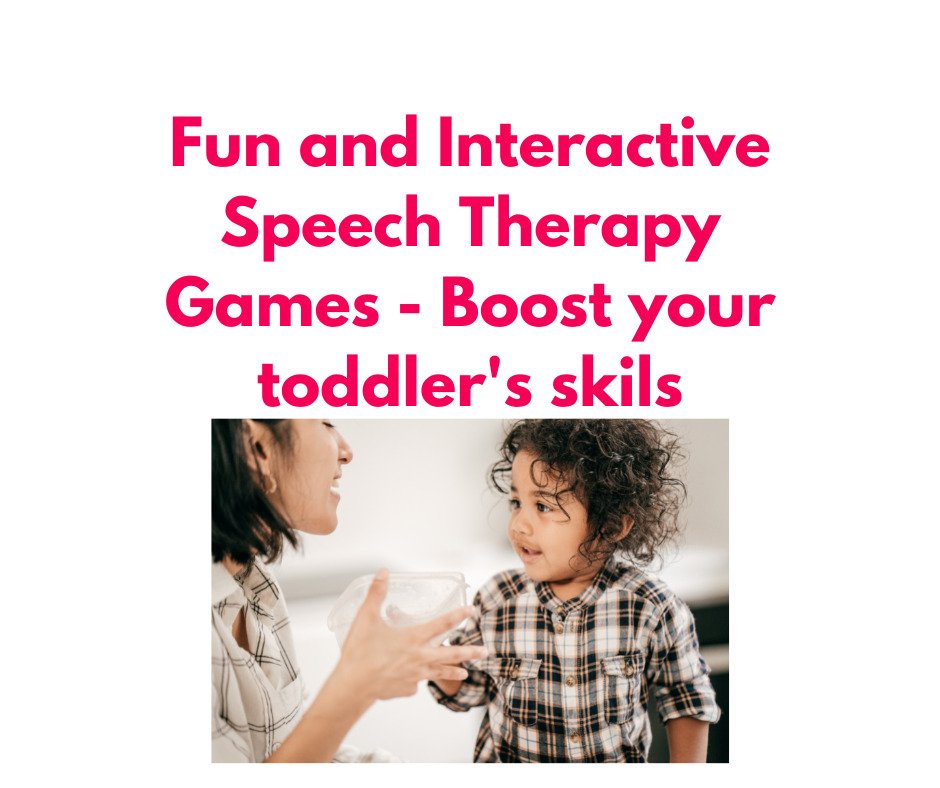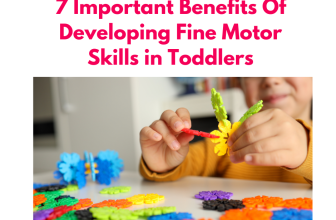
Looking for engaging ways to help your toddler develop their language skills? Check out our top speech therapy games that make learning fun! Watch as your little one’s communication abilities soar with these interactive and entertaining activities. Start playing today and unlock your toddler’s verbal potential!
Are you searching for ways to enhance your toddler’s language skills? Look no further than these exciting speech therapy games! Designed to be interactive and engaging, these games are the perfect way to make learning fun for your little one. With a range of activities and challenges, your toddler will be on their way to unlocking their verbal potential in no time. So why wait? Start playing today and watch as your child’s communication abilities soar!
Fun and Interactive speech therapy games for toddlers
“Simon Says”
This game can help toddlers improve their listening skills and follow directions. You can start with simple commands like “Simon says clap your hands” or “Simon says touch your toes” and gradually increase the complexity of the commands as your child gets better at it. You can also make it more fun by incorporating silly actions or sounds, like “Simon says hop like a bunny” or “Simon says make a silly face”.
This game is a great option for playing Simon Says with your toddler. It includes a deck of cards with fun and silly movement challenges that will get your little one moving and following instructions.
Tip – Some moms suggest that adding a visual cue like pointing to the body part that needs to be touched can help reinforce the instructions. You can also encourage your toddler to take turns being the “leader” and giving the commands.
“I Spy”
This game can help toddlers develop their vocabulary and descriptive language skills. You can play it anywhere, whether you’re at home or out and about. Simply say “I spy with my little eye, something that is…” and give a clue about an object in your surroundings. Your child can then take turns guessing what the object is.
This matching game is a great option for playing “I Spy” with your toddler. It includes picture cards of different objects and animals that your child can match to the real-life objects they see around them.
Tip – Some moms suggest making the game more challenging by giving more abstract clues, such as describing the shape or color of the object rather than the object itself. You can also use this game as an opportunity to teach your toddler new words and encourage them to use descriptive language.
Also Read – Easy Riddles for kids – Excellent way to encourage critical thinking
“Storytelling”
This game can help toddlers develop their narrative and communication skills. Start by giving your child a prompt or a theme, such as “Once upon a time, there was a magical forest”. Your child can then take turns adding to the story, either verbally or with pictures.
This game is a great option for playing storytelling games with your toddler. It includes scenes and stickers that can be used as prompts to tell stories.
Also, this game is a fun and interactive tool that can be used to play “Storytelling” with your toddler. It includes a set of cards with different characters, settings, and objects that can be used to inspire creative storytelling.
Tip – Some moms suggest using props or costumes to make the storytelling game more engaging. You can also encourage your toddler to use their imagination and come up with creative twists to the story.
Also Read – 30+ Best short stories in English with moral (Valuable lessons for kids)
“Rhyming”
This game can help toddlers develop their phonological awareness and pre-reading skills. Start by saying a word, such as “cat” and encourage your child to come up with words that rhyme with it, such as “hat”, “mat”, or “rat”.
This game is a fun and interactive way to play the rhyming game with your toddler. It includes colorful rockets and cards with pictures that your child can sort and match based on their rhyming sounds.
Tip – Some moms suggest making the game more challenging by using words with multiple syllables or words that don’t have an obvious rhyme. You can also incorporate silly rhymes or make up nonsense words to make it more fun.
Also Read – 50+ Funny and Popular Tongue Twisters for kids (free downloadable pdf included)
“Category Sorting”
This game can help toddlers develop their vocabulary and categorization skills. Start by choosing a category, such as “fruits” or “animals”. Your child can then take turns sorting pictures or objects into the correct category.
This is a fun and interactive game that can be used to play the category sorting game. It includes a set of alphabet cookies that your child can sort into different categories based on the pictures on the cards.
Tip – Some moms suggest starting with simple categories and gradually increasing the complexity as your child gets better at it. You can also encourage your child to come up with their own categories or use different criteria for sorting the objects.
Charades”
This game can help toddlers improve their communication and expressive language skills. Start by choosing a simple action or object, such as “jumping” or “apple”. Your child can then act out the action or use gestures to communicate the object to you.
This is a fun and interactive game that can be used to play charades with your toddler. It includes a set of wooden animal pieces that your child can stack and use to act out different animal actions.
Tip – Some moms suggest making the game more fun by incorporating silly actions or using costumes and props to act out different scenarios. You can also encourage your child to use different gestures and facial expressions to communicate the action or object.
“Conversation Starters”
This game can help toddlers develop their social skills and conversation abilities. Start by asking your child a question or giving them a topic to talk about, such as “What’s your favorite animal?” or “Tell me about your day”. Your child can then take turns answering the questions and asking follow-up questions.
This is a great tool for playing conversation starters with your toddler. It includes a set of magnets with different responsibilities and conversation starters that your child can use to initiate conversations.
Tip: Some moms suggest making the game more engaging by using open-ended questions that encourage your child to share their thoughts and feelings. You can also use this game as an opportunity to teach your child about active listening and turn-taking in conversations.
“Silly Sentences”
This game can help toddlers develop their language and grammar skills. Start by giving your child a set of words, such as “cat”, “hat”, and “sat”. Your child can then use the words to create a silly sentence, such as “The cat wore a hat while it sat on a mat”.
This sentence building dominoes is a fun and interactive tool that can be used to play “Silly Sentences” with your toddler. These dominoes feature different parts of speech, such as nouns, verbs, and adjectives, that can be combined to create silly sentences.
Tip – Some moms suggest making the game more engaging by using funny or unusual words, or by creating a story using the silly sentences. You can also encourage your child to use correct grammar and sentence structure as they create their sentences.
What is speech therapy for toddlers and when should I consider it for my child?
Speech therapy for toddlers is a specialized service that helps children develop and improve their communication skills, including speech, language, and social interaction. You should consider speech therapy if you notice that your child is having difficulty communicating or understanding others, or if they are not meeting developmental milestones for their age.
How can I help my toddler improve their speech and language skills at home?
There are many things you can do at home to help your toddler improve their speech and language skills. Some tips include reading to your child, encouraging them to talk about what they see and do, playing games that involve language and communication, and modeling good communication skills yourself.
What are some speech therapy games that I can play with my toddler at home?
There are many speech therapy games that you can play with your toddler at home to help improve their communication skills. Some popular games include “Simon Says”, “I Spy”, and “What’s Missing”. Other games that focus on vocabulary, grammar, and phonological awareness, such as “Rhyme Time” and “Category Game”, can also be helpful.
What are some signs that my child may need speech therapy?
Some signs that your child may need speech therapy include difficulty with speech sounds, trouble understanding or following instructions, limited vocabulary or communication skills, and difficulty with social interaction or conversation. It’s important to talk to your child’s pediatrician if you have concerns about their speech and language development.
How can I find a speech therapist for my toddler?
You can find a speech therapist for your toddler by talking to your child’s pediatrician or by searching for speech therapy services in your area. You can also look for online resources and support groups for parents of children with speech and language disorders. It’s important to find a qualified and experienced speech therapist who can provide specialized care for your child’s unique needs.
What should I expect during a speech therapy session for my toddler?
During a speech therapy session, your toddler will work with a speech therapist to address their specific communication needs. The therapist may use a variety of techniques and activities, such as play-based therapy, language drills, and social skills training. They may also provide you with homework or activities to practice at home.
How long does speech therapy typically last for toddlers?
The length of speech therapy for toddlers can vary depending on their specific needs and progress. Some children may only need a few sessions to address a specific issue, while others may require ongoing therapy for several months or years.
What should I do if my child is not responding well to speech therapy?
If your child is not responding well to speech therapy, it’s important to talk to their therapist and pediatrician to discuss alternative strategies or approaches. You may also want to seek a second opinion or consider switching to a different therapist or therapy approach.
How can I make speech therapy more fun and engaging for my toddler?
There are many ways to make speech therapy more fun and engaging for your toddler, such as using games and toys that incorporate language and communication skills, incorporating music and movement into therapy sessions, and providing positive reinforcement and encouragement.
How can I support my toddler’s speech and language development after they finish speech therapy?
After your toddler completes speech therapy, it’s important to continue to support their speech and language development at home. This can include continuing to practice speech and language skills through play and conversation, reading to your child regularly, and providing opportunities for social interaction and communication with others.
Can I do speech therapy at home without a speech therapist?
While it’s important to work with a qualified speech therapist to address your child’s specific communication needs, there are many things you can do at home to support your child’s speech and language development. Some activities you can try include reading to your child, singing songs, playing games that incorporate language and communication skills, and practicing conversations with your child.
How can I help my toddler with speech sound errors?
If your toddler is struggling with speech sound errors, it’s important to work with a speech therapist to identify the specific sounds they are having difficulty with and develop a plan for addressing them. Some activities that may help include practicing specific sounds, playing games that focus on sound discrimination and production, and providing positive reinforcement and encouragement.
What should I do if my child is not interested in speech therapy games or activities?
If your child is not interested in speech therapy games or activities, it’s important to find activities that are engaging and interesting for them. You may want to try different games or activities or incorporate their favorite toys or characters into therapy sessions. It’s also important to provide positive reinforcement and encouragement to help motivate your child.
How can I find support and resources for parents of children with speech and language disorders?
There are many resources available for parents of children with speech and language disorders, including online support groups, parenting blogs and websites, and professional organizations. You may also want to talk to your child’s therapist or pediatrician for recommendations and referrals to resources in your area.
What can I do to encourage my child’s social interaction and conversation skills?
To encourage your child’s social interaction and conversation skills, it’s important to provide opportunities for them to interact with others and practice their communication skills. This can include playdates with other children, engaging in social activities and hobbies, and modeling good communication skills yourself. It’s also important to provide positive reinforcement and encouragement to help build your child’s confidence and motivation.
In conclusion, speech therapy games for toddlers can be an effective and engaging way to support your child’s speech and language development. By incorporating fun and interactive games and activities into your child’s therapy sessions and daily routine, you can help them build the communication skills they need to succeed. Remember, every child is unique, so it’s important to work with a qualified speech therapist to develop a plan that meets your child’s specific needs. With patience, practice, and the right support, your child can overcome speech and language challenges and thrive.






